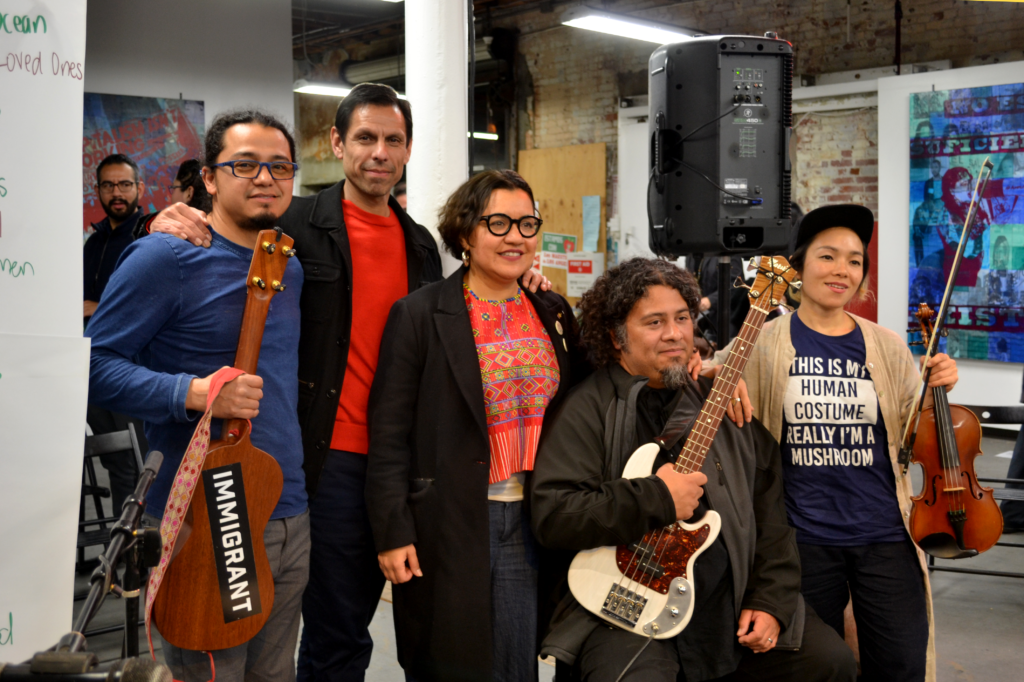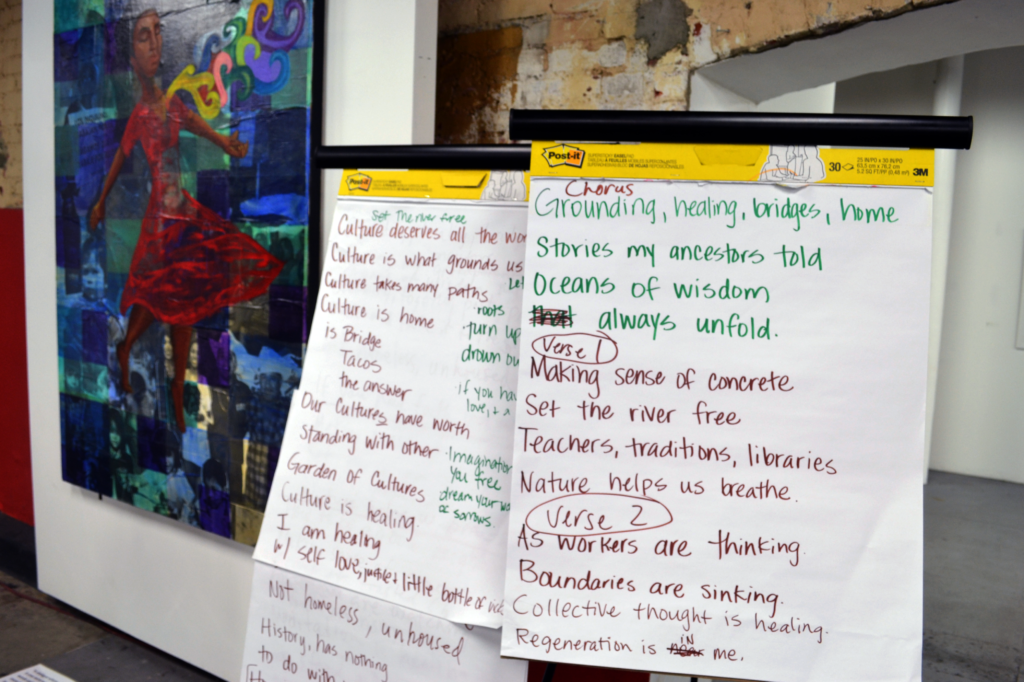On Wednesday, Feb. 28, ELACC was proud to present an exercise in Cultural Vitality at Self Help Graphics & Art to showcase the importance of cultural practices in our fight against gentrification and displacement. As part of the Compose LA music and ideas festival, our own Director of Cultural Vitality Quetzal Flores and UCLA Professor and author Gaye Theresa Johnson facilitated a collective songwriting exercise to unpack the ways music and visual art address issues of race, space and inequities in communities of color.
First, it’s about owning the power in our methods of cultural convening. Our communities are not just sites of struggle, but sites of resilience held up by cultural practices, like music and art, that can be cornerstones for both community resistance and regeneration. Gentrification does not take these practices into account, but systemically disregards them if not outright destroys them. Yet these practices are precisely what allows people to live their lives with joy and dignity.
To demonstrate the power of Cultural Vitality, Quetzal and Gaye led Wednesday’s audience in the creation of a song. Attendees were asked to respond to prompts — to identify what home means to them, what brings them joy, and more. Responses started out as simple words and short phrases before Quetzal and Gaye teased them out into more developed thoughts and phrases. Quetzal organized these into lyrics, and talented audience members stepped up and developed the melodies. All the while, a band was jamming and arranging the music.
This style of songwriting has long had significance in Latinx communities in East LA, but as Quetzal says, we are conditioned to think of music in a more transactional way.
“Our relationship to music has been so hyper arranged by capitalism,” he told the audience at the end of the exercise. “We buy music, we buy tickets to concerts, but we rarely get to participate in music collectively. Even if you’re a musician, our lives are really arranged. This is a way for us to decolonize this space of music — to be a community with music and music with community.”
Although the song turned out to be surprisingly catchy, the song itself is not as important as the experience of working together to engage with shared thoughts and experiences. By singing back to each other, attendees reinforced the values they articulated earlier.
“Teachers, traditions, libraries / Nature helps us breath.” “Collective thought is healing.” These were the lyrics they developed out of shared values.
This work can be messy — it takes time for people to become comfortable sharing let alone singing with each other — but it results in more engaged community members.
These kinds of workshops are not a one-off, but vital to the work of East LA Community Corporation. The key is breaking the cycle of resistance, ELACC President Isela Gracian explained while introducing the event.
As organizers against displacement, she said, we constantly find ourselves trapped in a “Cycle of Resistance,” in which we face an injustice, make an intention to fight it, organize an uprising to challenge it, and then witness a paradigm shift that results in innovation. The problem is, another injustice is always around the bend, resulting in yet another cycle from injustice back to innovation.
At ELACC, we are working to shift to another cycle — a cycle of regeneration created from our most innovative practices. Cultural Vitality is the catalyst, responding to and inspiring more community innovation and resulting in a sense of intergenerational belonging, participation, and empowerment.
In other words, our cultural convening practices are sites for the facilitation of power and cooperation. Take the work of co-presenter Gaye Theresa Johnson, who emphasizes how cultural expressions can break divisions among black and brown communities and facilitate interracial, antiracist alliances.
“We have a right to be here together and to make beautiful things, in spite of ourselves,” she said. “We already have what we need in order to continue and to create a different kind of society. We’re always asking for some external validation and prescription but we already have it. Tonight is going to show us that.”
If interested in East LA Community Corporation providing technical assistance to bring this experience to your organization, university, or conference contact Naheemah McMicheaux-McCallop at nmcmicheaux@elacc.org.


